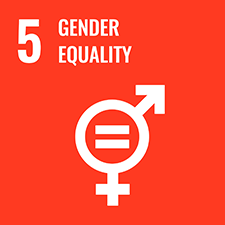UEH supports female lecturers and researchers in conquering the fields of science and technology
02 Oct, 2023
Recently, the University of Economics Ho Chi Minh City (UEH) has consistently created opportunities for its female lecturers and researchers to engage in male-dominated fields such as technology, mathematics, and engineering. Through regional and national initiatives, these efforts support skill development and encourage women to confidently rise in these challenging professions.
Empowering Women for Gender Equality Towards Sustainable Development
The University of Economics Ho Chi Minh City (UEH) has long fostered a positive mindset about gender equality and implemented strategies to improve the empowerment of women. At UEH, the role of each female staff member is crucial, making substantial contributions to the university's development. UEH continuously provides more opportunities and conditions for women to showcase and develop their abilities. Additionally, UEH focuses on training female staff to improve their qualifications, skills, and competencies according to the requirements of their positions.
Research Project “Integrating Gender into Water Management and Disaster Prevention in the Context of Climate Change in Cu Lao Dung District, Soc Trang (GS4Infra)”
GS4Infra is an interdisciplinary project funded by the Mekong Think Tank Program, approved in 2023, and led by UEH's female lecturer, Ms. Nguyễn Thị Thu Thủy (University of Economics Ho Chi Minh City), along with investigators from various fields such as Law, Sociology, and Biotechnology. The project aims to understand and propose solutions to gender-sensitive issues that increase during the formulation of policies and public sector development related to water, energy, and climate change infrastructure. It focuses on flood protection dikes, irrigation canals, and salinity prevention sluices. The project targets two communes in Cu Lao Dung District, located on the Bassac River, a branch of the Mekong River, which faces challenges from climate change and upstream hydropower development.

Ms. Nguyễn Thị Thu Thủy - Project Leader of GS4Infra
Research "Assessing the Academic Performance of Students in Developing Countries in International Education Tests by Socioeconomic Status Across Regions, Areas, and Genders: The Case of Vietnam in PISA 2012 and 2015"
One of the significant academic contributions from a female lecturer at UEH, Ms. Nguyễn Thị Hồng Thu, analyzes the relationship between family circumstances (measured by socioeconomic status - SES) and students' academic skills (measured by PISA scores) in Vietnam. The results show that SES significantly affects the academic performance of Vietnamese students. These differences vary by region, area, and gender, reflecting differences in educational resources and learning opportunities. The research highlights the importance of reducing educational inequality to improve the quality and equity of education in Vietnam.
With the support of UEH and partners, more female lecturers and staff are confidently making their mark in the fields of science, technology, and engineering, contributing to a diverse, innovative, and equitable workforce. These efforts create opportunities to inspire and encourage women to advance further in their careers and affirm themselves in challenging professions.









